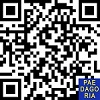THE EFFICACY OF DISCOVERY LEARNING IN ENHANCING THE CONCEPTUAL COMPREHENSION OF IMPULSE AND MOMENTUM AMONG CLASS X STUDENTS IS EXAMINED
Abstract
Abstrak: Materi Impuls dan Momentum adalah salah satu materi Fisika yang diajarkan di SMA. Penelitian ini bertujuan untuk mengevaluasi dampak positif pembelajaran discovery learning dalam meningkatkan pemahaman konsep peserta didik kelas X terhadap materi Fisika, khususnya impuls dan momentum di tingkat SMA. Metode penelitian yang digunakan adalah desain true experimental dengan pretest-posttest control group design. Analisis data melibatkan uji prasyarat analisis data, analisis deskriptif, dan uji hipotesis. Berdasarkan hasil penelitian dan pembahasan sebelumnya, dapat disimpulkan bahwa hipotesis nol (Ho) ditolak dan hipotesis alternatif (Ha) diterima. Hal ini dilihat dari nilai t-hitung sebesar 3,66 yang melebihi nilai t-tabel sebesar 1,67. Dengan demikian, dapat disimpulkan bahwa pemahaman konsep siswa yang menggunakan model pembelajaran Discovery Learning lebih baik daripada siswa yang menggunakan model pembelajaran konvensional. Nilai rata-rata hasil belajar untuk kelas eksperimen adalah 61,26, melebihi nilai rata-rata kelas kontrol yaitu 55,25. Hasil ini menunjukkan bahwa pemahaman konsep peserta didik yang mengikuti pembelajaran dengan model Discovery Learning lebih baik dibandingkan dengan mereka yang menggunakan model pembelajaran konvensional.
Abstract: Impulse and momentum material is one of the Physics materials taught in high school. This study aims to evaluate the positive impact of discovery learning in improving the concept understanding of grade X students on Physics material, especially impulse and momentum at the high school level. The research method used is true experimental design with pretest-posttest control group design. Data analysis involves data analysis prerequisite tests, descriptive analysis, and hypothesis testing. Based on the results of the research and the previous discussion, it can be concluded that the null hypothesis (Ho) is rejected and the alternative hypothesis (Ha) is accepted. This can be seen from the t-count value of 3.66 which exceeds the t-table value of 1.67. Thus, it can be concluded that the concept understanding of students who use the Discovery Learning learning model is better than students who use the conventional learning model. The average value of learning outcomes for the experimental class was 61.26, exceeding the average value of the control class which was 55.25. This result shows that the concept understanding of students who follow learning with the Discovery Learning model is better than those who use the conventional learning model.Keywords
Full Text:
PDFReferences
Aliman, M., & Astina, I. K. (2019). Improving Environmental Awareness of High School Students’ in Malang City through Earthcomm Learning in the Geography Class. International Journal of Instruction, 12(4), 79–94.
Bao, L., & Koenig, K. (2019). Physics education research for 21st century learning. Disciplinary and Interdisciplinary Science Education Research, 1(1), 1–12. https://doi.org/10.1186/s43031-019-0007-8
Defrianti, R., Mufit, F., Gusnedi, -, & Hidayat, Z. (2021). Design of Cognitive Conflict-Based Teaching Materials Integrating Real Experiment Video Analysis on Momentum and Impulse Materials to Improve Students’ Concept Understanding. PILLAR OF PHYSICS EDUCATION, 14(2), Article 2. https://doi.org/10.24036/11155171074
Eksanita, M., Parno, P., & Diantoro, M. (2021). Student Conceptual Mastery on Momentum and Impulse Materials in Problem Based Learning Models Assisted by Thinking Map. Jurnal Pendidikan Sains, 9(2), Article 2. https://doi.org/10.17977/jps.v9i2.15088
Engeness, I. (2021). Developing teachers’ digital identity: Towards the pedagogic design principles of digital environments to enhance students’ learning in the 21st century. European Journal of Teacher Education, 44(1), 96–114.
Evrim, U., & Dadli, G. (2020). The effect of problem-based learning on 7th-grade students’ environmental knowledge, attitudes, and reflective thinking skills in environmental education. Journal of Education in Science Environment and Health, 6(3), 177–192.
Haqqo, A., Yuliati, L., & Latifah, E. (2023). Exploration of students’ conceptual changes through phenomenon based distance learning with multimedia videos momentum and impulse. AIP Conference Proceedings, 2569(1), 050018. https://doi.org/10.1063/5.0112630
Kawuri, M. Y. R. T., Ishafit, I., & Fayanto, S. (2019). Efforts to improve the learning activity and learning outcomes of physics students with using a problem-based learning model. IJIS Edu: Indonesian Journal of Integrated Science Education, 1(2), 105–114.
Lidiana, H., Gunawan, G., & Taufik, M. (2018). Pengaruh Model Discovery Learning Berbantuan Media PhET Terhadap Hasil Belajar Fisika Peserta Didik Kelas XI SMAN 1 Kediri Tahun Ajaran 2017/2018. Jurnal Pendidikan Fisika Dan Teknologi, 4(1), 33–39.
Liwanag, M., Salic-Hairulla, M., Malicoban, E. V., Alcuizar, R. M., Villaruz, M., & Malayao, S. J. (2022). A Development of Comprehensive Project-Based Learning Packets in Teaching Conservation of Momentum. International Journal of Science Education and Teaching, 1(3), Article 3. https://doi.org/10.14456/ijset.2022.14
Munawaroh, A., Wilujeng, I., & Hidayatullah, Z. (2021). Physics Learning Instruction Based on the Conceptual Change Model for Senior High Schools. 441–446. https://doi.org/10.2991/assehr.k.210326.063
Murillo-Zamorano, L. R., López Sánchez, J. Á., & Godoy-Caballero, A. L. (2019). How the flipped classroom affects knowledge, skills, and engagement in higher education: Effects on students’ satisfaction. Computers & Education, 141, 103608. https://doi.org/10.1016/j.compedu.2019.103608
Ndoa, Y. a. A., Anastasia, D. P., & Jumadi, J. (2022). Development of An Android-Based Physics E-Book with A Scientific Approach to Improve The Learning Outcomes of Class X High School Students on Impulse and Momentum Materials. Jurnal Pendidikan Fisika Indonesia, 18(2), Article 2. https://doi.org/10.15294/jpfi.v18i2.30824
Ointu, N. N., Yusuf, M., & Ntobuo, N. E. (2022). Improving student learning outcomes through the application of the revised jigsaw collaborative learning model on impulse and momentum material. Jurnal Pijar Mipa, 17(2), Article 2. https://doi.org/10.29303/jpm.v17i2.3297
Purwaningsih, E., Sari, S. P., Sari, A. M., & Suryadi, A. (2020). The Effect of STEM-PjBL and Discovery Learning on Improving Students’ Problem-Solving Skills of Impulse and Momentum Topic. Jurnal Pendidikan IPA Indonesia, 9(4), Article 4. https://doi.org/10.15294/jpii.v9i4.26432
Putra, A., Lufri, Festiyed, & Ellizar. (2019). How student worksheet oriented of content complexity and cognitive processes can improve conceptual understanding and critical thinking skill of student in physics learning in high school. Journal of Physics: Conference Series, 1185(1), 012045. https://doi.org/10.1088/1742-6596/1185/1/012045
Rahayu, M. S. I., & Kuswanto, H. (2021). The Effectiveness of the Use of the Android-Based Carom Games Comic Integrated to Discovery Learning in Improving Critical Thinking and Mathematical Representation Abilities. Journal of Technology and Science Education, 11(2), 270–283. https://eric.ed.gov/?id=EJ1318091
Rahmah, S., Mastuang, M., & Dewantara, D. (2023). Development of Impulse and Momentum Teaching Materials Using the Inquiry-Discovery Learning Model to Train Students’ Creativity. Prisma Sains : Jurnal Pengkajian Ilmu Dan Pembelajaran Matematika Dan IPA IKIP Mataram, 11(1), 53–62. https://doi.org/10.33394/j-ps.v11i1.6606
Rodrigues, A. P., Jorge, F. E., Pires, C. A., & António, P. (2019). The contribution of emotional intelligence and spirituality in understanding creativity and entrepreneurial intention of higher education students. Education + Training, 61(7/8), 870–894. https://doi.org/10.1108/ET-01-2018-0026
Sahrianti, I., Taufik, M., Gunada, I. W., & Doyan, A. (2021). Development of Physics Learning Tools Model Discovery Learning on Momentum and Impulse Material. Jurnal Penelitian Pendidikan IPA, 7(3), Article 3. https://doi.org/10.29303/jppipa.v7i3.580
Saputri, M., Syukri, M., & Elisa. (2022). Analysis of momentum and impulse on students’ creative thinking skill through project based learning integrated STEM (science, technology, engineering, mathematics). Journal of Physics: Conference Series, 2193(1), 012066. https://doi.org/10.1088/1742-6596/2193/1/012066
Seprapti, A. I., Yuliati, L., & Parno, P. (2023). Analysis of students’ conceptual understanding level in momentum and impulse concept. AIP Conference Proceedings, 2569(1), 050014. https://doi.org/10.1063/5.0112495
Serevina, V., & Luthfi, K. (2021). Development of discovery learning-based on online learning tools on momentum and impulse. Journal of Physics: Conference Series, 1876(1), 012076. https://doi.org/10.1088/1742-6596/1876/1/012076
Simamora, R. E., & Saragih, S. (2019). Improving Students’ Mathematical Problem Solving Ability and Self-Efficacy through Guided Discovery Learning in Local Culture Context. International Electronic Journal of Mathematics Education, 14(1), 61–72.
Sukmadewi, A. G. A. G., & Jumadi, J. (2023). Development of Mobile Learning Based E-Module to Improve Concept Understanding and Interest Learning X Class Student in Momentum and Impulse. Jurnal Penelitian Pendidikan IPA, 9(8), Article 8. https://doi.org/10.29303/jppipa.v9i8.3565
Susilawati, S., Doyan, A., & Muliyadi, L. (2022). Effectiveness of Guided Inquiry Learning Tools to Improve Understanding Concepts of Students on Momentum and Impulse Materials. Jurnal Penelitian Pendidikan IPA, 8(3), Article 3. https://doi.org/10.29303/jppipa.v8i3.1919
Yuberti, Latifah, S., Anugrah, A., Saregar, A., Misbah, & Jermsittiparsert, K. (2019). Approaching Problem-Solving Skills of Momentum and Impulse Phenomena Using Context and Problem-Based Learning. European Journal of Educational Research, 8(4), 1217–1227. https://eric.ed.gov/?id=EJ1231628
DOI: https://doi.org/10.31764/paedagoria.v15i3.22643
Refbacks
- There are currently no refbacks.
Copyright (c) 2024 Grandis Rahmawan, Arif Hidayat, Endang Purwaningsih, Rizky Yuwono Joko Priyonggo

This work is licensed under a Creative Commons Attribution-ShareAlike 4.0 International License.
Paedagoria : Jurnal Kajian, Penelitian dan Pengembangan Kependidikan
Fakultas Keguruan & Ilmu Pendidikan | Universitas Muhammadiyah Mataram.
_______________________________________________
 | Paedagoria : Jurnal Kajian, Penelitian dan Pengembangan Kependidikan |
______________________________________________
CURRENT INDEXING:
EDITORIAL OFFICE:


















